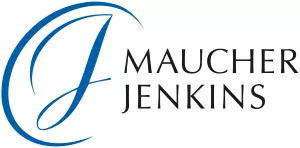- with readers working within the Pharmaceuticals & BioTech industries
Decision of the Federal Court of Justice dated April 24, 2025 – I ZB 50/24 ("NJW Orange")
Background:
The case concerned the registration of the specially mixed color tone "NJW Orange" as an abstract color trademark. The trademark was registered in 2009 based on acquired distinctiveness pursuant to Section 8 (3) of the German Trademark Act (MarkenG). The color is used for the "Neue Juristische Wochenschrift (NJW)", which describes itself as "by far Germany's largest and most well-known legal journal."
In 2015, the applicant filed a cancellation request with the German Patent and Trademark Office (DPMA), arguing, among other things, that the mark lacked distinctiveness (§ 8 (2) No. 1 MarkenG), and particularly that it had not acquired distinctiveness at the relevant time of registration. The case passed through several instances. In a second ruling, the Federal Patent Court (BPatG) again rejected the appeal, reasoning that the applicant had failed to sufficiently demonstrate to what extent – or even whether – the trademark owner's advertising campaign launched just before the survey on acquired distinctiveness had influenced its outcome.
The present legal complaint challenged this decision. The applicant claimed a violation of the right to be heard (§ 83 (3) No. 3 MarkenG) and a defect in the court's composition (§ 83 (3) No. 1 MarkenG).
Key Legal Question:
Was the applicant's constitutionally guaranteed right to be heard violated because the Federal Patent Court did not adequately consider the argument that the trademark owner's advertising campaign influenced the court-commissioned survey on acquired distinctiveness?
Applicable Legal Provisions:
- 8 (2) No. 1 MarkenG, § 8 (3) MarkenG, § 83 (3) No. 3 MarkenG, § 83 (3) No. 1 MarkenG, Article 103 (1) of the Basic Law (GG)
Key Points of the Court's Decision:
The Federal Court of Justice (BGH) overturned the decision of the Federal Patent Court from June 19, 2024, due to a violation of the right to be heard under Article 103 (1) GG in conjunction with § 83 (3) No. 3 MarkenG and remanded the case for reconsideration.
According to the BGH, the Federal Patent Court failed to adequately assess the applicant's submission concerning the trademark owner's advertising campaign, which partly overlapped with the period during which the expert survey was conducted. This constituted a violation of the applicant's right to be heard.
The decisive point was that the trademark owner had conducted a "noticeable" advertising campaign in digital trade media and on social networks during the survey period, which was likely to temporarily enhance the perception of the color among the relevant legal professional audience. The BGH considered the level of substantiation required by the BPatG concerning the campaign's reach to be unreasonable, especially when such information lies entirely within the control of the trademark owner. Whoever initiates an advertising campaign—as in this case—is obliged to disclose its scope, timing, and media channels if there are legitimate doubts about the objectivity of a court-commissioned piece of evidence.
In such cases, the party responsible for the advertising bears a secondary burden of disclosure, derived from general procedural principles, especially when the opposing party lacks access to the relevant evidence but is still expected to present a substantiated argument. The BPatG failed to place this burden on the trademark owner and instead unjustifiably rejected the applicant's argument as insufficient.
An expert survey on acquired distinctiveness can only yield representative results if the trademark owner does not simultaneously launch promotional campaigns that highlight the mark during or around the time of the survey. A campaign like the one conducted by the trademark owner in this case could compromise the reliability of the survey and ultimately render it inadmissible as evidence.
However, the BGH dismissed the applicant's objection that the Federal Patent Court was not properly composed due to the alleged bias of participating judges.
Practical Implications:
This decision clarifies and tightens several aspects of judicial evaluation of evidence in trademark cancellation proceedings.
For trademark owners and companies, the following takeaways apply:
- For trademarks—especially color marks lacking inherent distinctiveness—acquired distinctiveness must be proven with particular care, especially through methodologically sound expert reports.
- Simultaneous advertising campaigns during consumer surveys may compromise the results and thus endanger trademark protection.
- There is a secondary obligation to disclose promotional activities transparently when they are likely to influence an expert report. This protects applicants for cancellation from being held to unreasonably high standards of substantiation.
Applicants (e.g., competitors) should be aware that:
- A well-founded objection can successfully enforce the right to be heard.
- Even without comprehensive knowledge of the promotional activities, a challenge may succeed when there is an asymmetric information situation.
- Allegations of judicial bias must be made carefully and substantiated to avoid rejection due to potential abuse of rights.
For courts, this decision reinforces the need to carefully consider external influencing factors—such as advertising campaigns—when evaluating expert reports and to apply the burden of proof appropriately.
The content of this article is intended to provide a general guide to the subject matter. Specialist advice should be sought about your specific circumstances.


